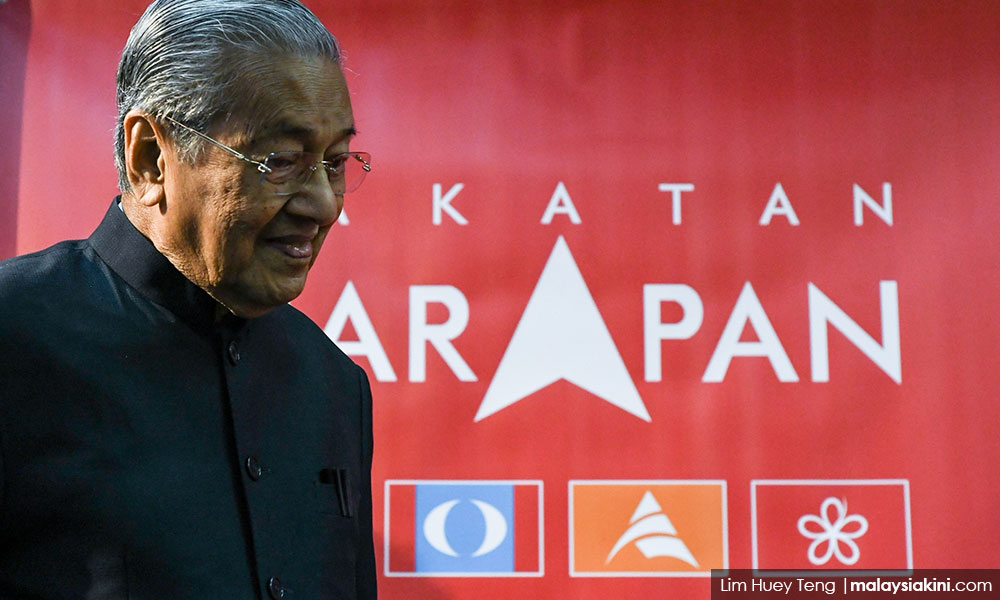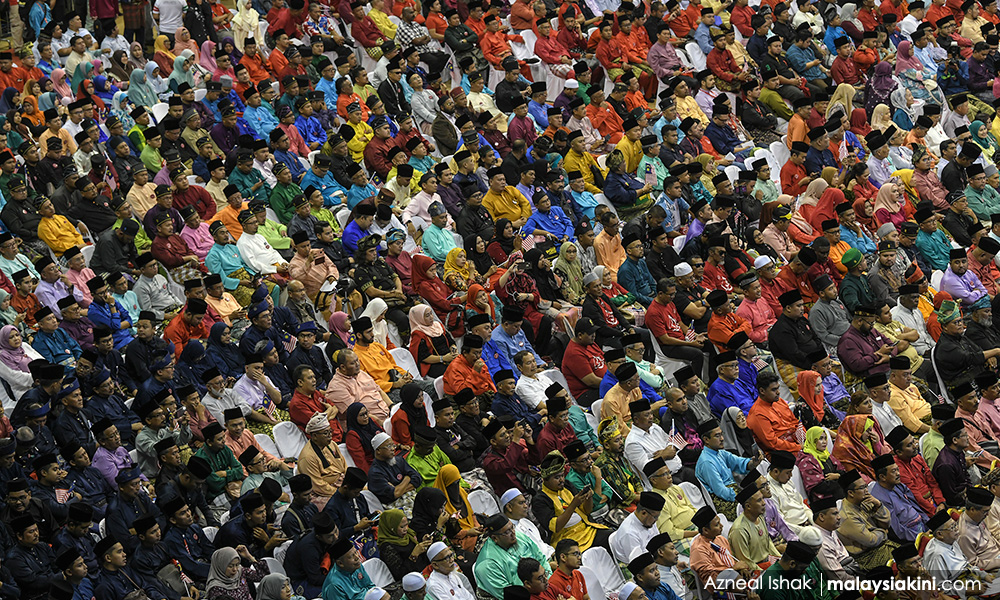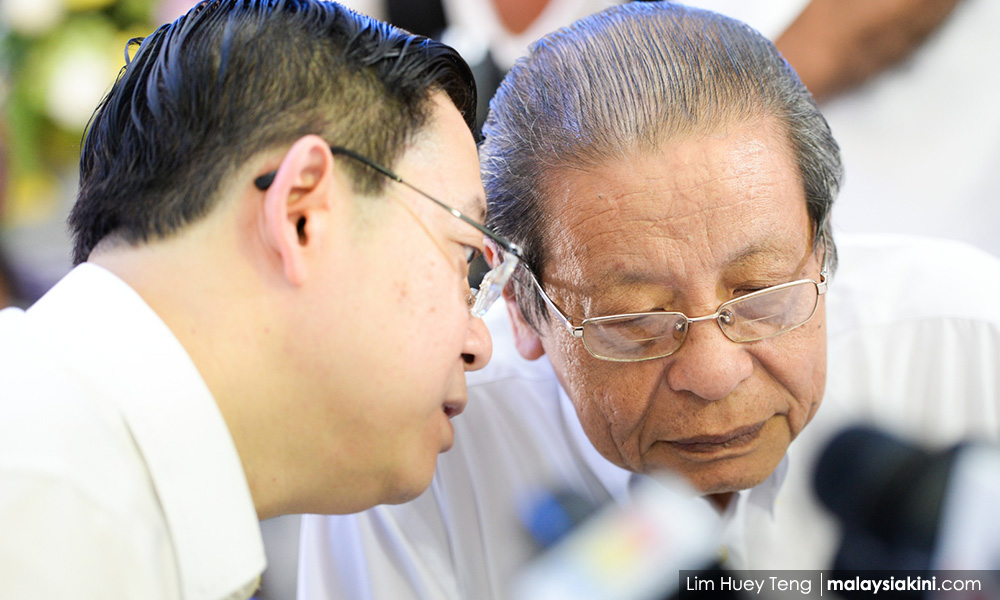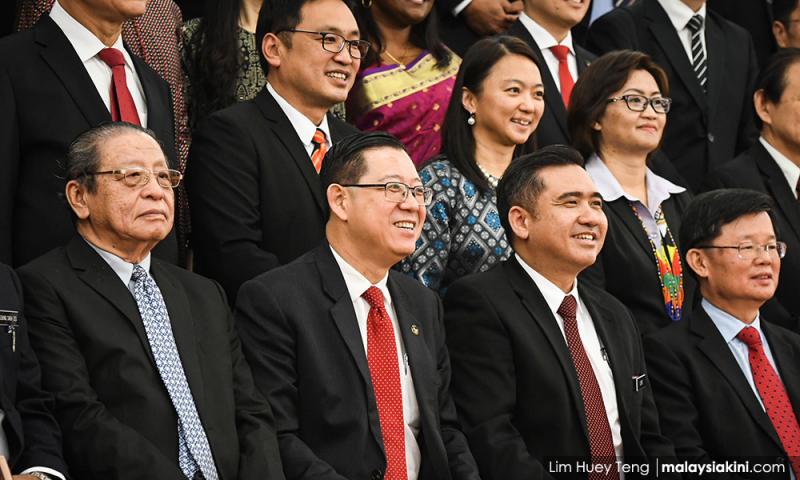COMMENT | It's 'dia-mau-kerusi' season again in the DAP
COMMENT | It has been a long-running joke within the DAP after years of seeing desperate leaders fighting to garner seats to contest, that democracy in the party should be more aptly called “dia mau kerusi”, or “he/she wants a seat”.
I had to laugh when I read that a rather petrifying foreign observer commented that DAP leaders were having another slugfest between "Chinese chauvinists" versus "Malaysian Malaysians" and yet all the protagonists on both sides had western names like Ronnie, Tony, Hannah, Anthony…
Yes, you do not have to be an expert political analyst to know that it is election time again in the DAP at federal and state levels and that all the name-calling has less to do with democracy than with “dia mahu kerusi”.
Certainly, factionalism in the DAP is as old as the gerontocrats in the party. The jostling to be on the nomination “menu” for the election means it is a zero-sum game – one more “multi-racial” leader means one less “Chinese chauvinist” and vice versa. The prize, as always, is a “kerusi” (seat) in the state or national party committee which gives the winners a better chance of contesting in the general election.
I do not think outsiders should get involved in the factionalism although it is good for the nation to remind the wrestlers in the slugfest that these are important factors for the Democratic Action Party to ponder when they elect their leaders for the next term, no matter if they are “Chinese chauvinists” or a “multi-racial chauvinists”:
DAP leaders should explain to their members how they could accept the former Mahafiraun (Dr Mahathir Mohamad) as the head of the supposedly "reform movement" in 2018. Was it not bare-faced opportunism? It was like choosing to invite a fox into the hen house, an analogy that was proven valid in 2020 when the fox revealed his true nature.
Then, while the Pakatan Harapan manifesto prohibited the prime minister from also taking on the finance portfolio, Mahathir succeeded in taking over the choicest companies, namely Khazanah, PNB and Petronas under his Prime Minister's Office.

It was a return to the old Mahathirist autocracy. Was the cabinet consulted on the decision to start Proton 2, privatise Khazanah, Malaysia Incorporated and the revival of the failed F1 circuit? The appointment of Mahathir and Economic Affairs Minister Azmin Ali to the board of Khazanah Nasional Bhd also went against the Harapan manifesto promise of keeping politicians out of publicly-funded investments since it leads to poor accountability. DAP leaders in his cabinet need to explain their compliance with Mahathir’s actions.
And while those in Harapan were still licking their wounds after February 2020, what was bordering on extreme opportunism was when negotiations were ongoing to form a coalition with Umno and led by the same Mahafiraun. What happened to the slogan “No kleptocrats”? How has Umno transformed to make them possible partners in a coalition?
As events have unfolded, Harapan has become more and more like BN 2.0, especially with the assimilation of Umno MPs into Bersatu. Even Anwar Ibrahim was considering accepting the former BN minister Salleh Keruak into his party. He has definitely not broken any laws in his confidential phone call to the Umno president but it has certainly exposed his duplicity and hollow commitment to reformasi.

The most revealing and distressing initiative of all during the brief Harapan rule was the so-called “Malay Dignity Congress” with its racist resolutions and which Mahathir patronised, continuing the New Economic Policy in the new "Shared Prosperity Vision".
And as this short rule ambled along, it consistently failed to meet manifesto promises and voter expectations in numerous ways. We witnessed the flip-flops over the Harapan promise to abolish toxic institutions and laws, such as Security Offences (Special Measures) Act (Sosma)and other detention-without-trial laws in the country. On top of all that, we saw a disturbing trend of autocratic decision-making and policies symptomatic of the old Mahathir 1.0 era.
Bowing to “Malay dominance”, it was equally absurd to tell Malaysian Independent Chinese Secondary School graduates that their UEC certificate could only be recognised in five years’ time. This is a serious breach of promise in the Harapan GE14 manifesto since more than 80 percent of Chinese voters voted for Harapan because of this promised reform. It has nothing to do with “Chinese chauvinism” or “Malaysian chauvinism”. It was simply a breach of manifesto promises.
The failure of the DAP leaders to push through the long-awaited local council elections during the Harapan administration will now haunt them. The excuse of the government (expenses involved) to delay local government elections which have been suspended in our country since 1965 is not acceptable.
It is a simple matter of abolishing a provision under the Local Government Act 1976 and reviving the Local Government Election Act to introduce local government elections. DAP members should question their leaders on this.
It is a matter of principle and procedure under a democratic system that anyone in a position of power who has been charged with serious felony such as corruption, must step down. This includes the prime minister and the chief minister. This means that any elected leader who has been indicted on such a charge is required to step down, at least temporarily, although they remain innocent until proven guilty. This rule of democracy applies to all leaders, irrespective of whether they are federal or state or municipal leaders. Which DAP leader – apart from the late Karpal Singh – is lion enough to call on their “dear leader” to step down temporarily?

As for the DAP, their great leader since the 60s remains the helmsman while the hand of his closely nurtured pedigree is firmly on the rudder of the party. As 2020 ended, the call for the father-and-son combo in DAP to step aside for other leaders by a retiring DAP leader of Selangor (who is only in his 50s!) is a refreshing aspiration for leadership regeneration.
So, what hope is there of any political regeneration in the DAP in 2021? Will these gerontocrats be generous enough to step aside for new young leaders with fresh progressive visions and skills? Let us face it, the number of available seats in the federal Parliament and state assemblies is strictly limited.
To have served three terms in Parliament is surely a reasonable limit and allows new candidates to have a go at representing the people. Term limits for elected representatives will create the opportunity for younger people and more women and minority representatives to get elected to public office.
To conclude, if the DAP is to credibly live up to its name, they must elect leaders who are principled and consistent democrats and who stand up for the demands and aspirations of the people and protect the rights of the marginalised and minorities.
To regain voter trust, democratic practices must be seen to prevail within the party, not overridden by opportunists jostling for a seat for themselves or their faction whilst smearing their opponents with labels such as “Chinese chauvinists” or “multi-racial capitulationists”.
KUA KIA SOONG is adviser of Suara Rakyat Malaysia (Suaram).
The views expressed here are those of the author/contributor and do not necessarily represent the views of Malaysiakini.
RM12.50 / month
- Unlimited access to award-winning journalism
- Comment and share your opinions on all our articles
- Gift interesting stories to your friends
- Tax deductable

 Kua Kia Soong
Kua Kia Soong